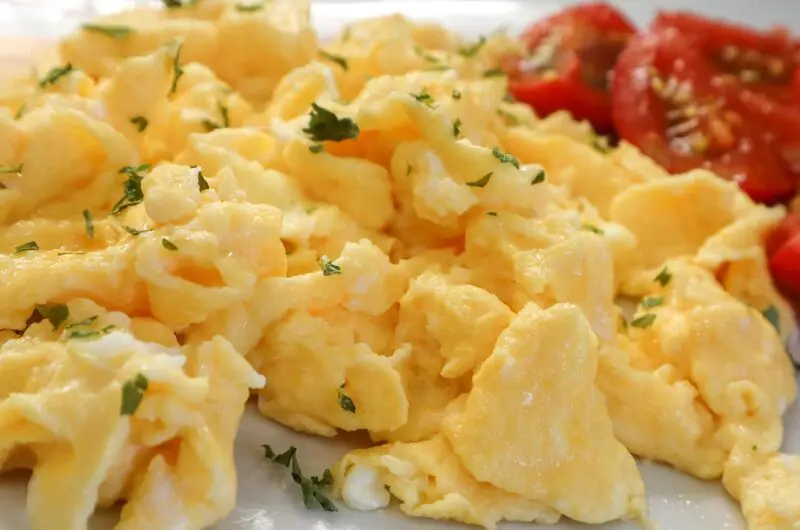The egg fast meal plan has gained popularity in recent years, particularly among those following low-carb or ketogenic lifestyles. Touted as a short-term solution for breaking weight loss plateaus, boosting fat-burning, or resetting eating habits, this diet revolves around one simple, versatile ingredient: eggs. While it may sound restrictive or even quirky, the egg fast has a dedicated following who swear by its results. But what exactly is an egg fast? How does it work, and is it right for you? In this article, we’ll dive into the details of the egg fast meal plan, its benefits, potential drawbacks, and provide a practical 5-day sample plan to get you started.
What Is an Egg Fast?
An egg fast is a short-term, highly restrictive eating plan that emphasizes eggs as the primary source of nutrition. Typically lasting 3 to 5 days, it’s designed to jumpstart ketosis—a metabolic state where the body burns fat for fuel instead of carbohydrates. The diet was popularized within the keto community as a way to overcome weight loss stalls, reduce cravings for carbs, and simplify meal planning.
The basic premise is straightforward: you consume eggs, healthy fats (like butter or coconut oil), and small amounts of full-fat cheese, while avoiding nearly all other food groups. By drastically limiting carbohydrate intake and focusing on high-fat, high-protein meals, the egg fast mimics the principles of the ketogenic diet but takes it to an extreme, streamlined level.
While eggs are the star of the show, the diet isn’t about eating them plain all day. Creativity is encouraged, and followers whip up everything from scrambled eggs with cheese to egg-based “crepes” or custards. The goal? Keep it simple, stay satiated, and push your body into a deeper fat-burning mode.
Why Eggs?
Eggs are a nutritional powerhouse, which is why they’re the cornerstone of this plan. A single large egg contains approximately:
- 6 grams of high-quality protein: Supports muscle maintenance and satiety.
- 5 grams of fat: Provides energy and helps sustain ketosis.
- Less than 1 gram of carbs: Keeps blood sugar stable and insulin low.
- Vitamins and minerals: Including B12, selenium, choline, and riboflavin.
Eggs are also affordable, widely available, and incredibly versatile, making them an ideal candidate for a monothematic diet. The addition of fats like butter or oil ensures you’re getting enough calories and staying in ketosis, while cheese (in moderation) adds flavor and variety.
Rules of the Egg Fast
To succeed on an egg fast, you need to follow a strict set of guidelines. These rules ensure the diet achieves its intended purpose—whether that’s weight loss, breaking a stall, or curbing carb cravings. Here’s what you need to know:
- Eat at least 6 eggs per day: This is the minimum, though most people consume 6–12 depending on hunger and caloric needs.
- Pair eggs with fat: For every egg, consume 1 tablespoon of healthy fat (e.g., butter, coconut oil, olive oil, or avocado oil).
- Include cheese sparingly: Up to 1 ounce (28 grams) of full-fat cheese per egg is allowed, though some stick to 4–6 ounces total per day.
- Eat within 30 minutes of waking: This kickstarts your metabolism and keeps hunger at bay.
- Eat every 3–5 hours: Even if you’re not hungry, regular meals help maintain energy and ketosis.
- Drink plenty of water: Aim for at least 8 cups (64 ounces) daily to stay hydrated and support digestion.
- Avoid carbs and sugars: No fruits, veggies, grains, or sweeteners (even artificial ones) are allowed.
- Keep it short-term: The egg fast is not meant to last beyond 5 days due to its restrictive nature.
Some variations allow black coffee, tea, or zero-carb beverages like sparkling water, but purists stick to water alone. Condiments like salt, pepper, and certain spices are permitted as long as they’re carb-free.
Benefits of the Egg Fast
The egg fast isn’t just a gimmick—it offers several potential benefits, particularly for those already accustomed to low-carb eating. Here are some of the most commonly cited advantages:
1. Rapid Weight Loss
By slashing carbs and focusing on fat and protein, the egg fast forces your body into ketosis quickly. This leads to a drop in water weight (due to glycogen depletion) and, for some, accelerated fat loss. Many report losing 5–10 pounds in just 3–5 days, though much of this is temporary water weight.
2. Breaking Plateaus
If you’ve been stuck at the same weight despite following a keto diet, the egg fast can shake things up. Its simplicity eliminates hidden carbs or overeating, helping you get back on track.
3. Reduced Cravings
Carb-heavy diets often fuel sugar cravings. The egg fast eliminates these triggers, allowing your taste buds and hunger hormones to reset. After a few days, many find they no longer crave sweets or snacks.
4. Simplicity
With only a handful of ingredients, the egg fast is easy to plan and execute. There’s no need for complicated recipes or grocery hauls—just eggs, fat, and cheese.
5. Nutrient Density
Eggs are packed with essential nutrients, so while the diet is restrictive, you’re still getting protein, healthy fats, and vitamins to fuel your body.
Potential Risks and Downsides
While the egg fast has its fans, it’s not without controversy. Critics argue that its restrictive nature and short-term focus make it unsustainable and potentially risky. Here are some downsides to consider:
1. Nutrient Deficiencies
Eliminating fruits, vegetables, and other food groups means missing out on fiber, antioxidants, and certain vitamins. Over 5 days, this isn’t a major issue, but extending the fast could lead to deficiencies.
2. Digestive Issues
The lack of fiber can cause constipation, while the high fat content might upset sensitive stomachs. Some also report nausea or “egg fatigue” from eating the same food repeatedly.
3. Cholesterol Concerns
Eggs were once demonized for their cholesterol content, though modern research shows they don’t significantly raise blood cholesterol for most people. Still, if you have a history of heart disease, consult a doctor before diving in.
4. Temporary Results
The rapid weight loss from an egg fast is often temporary. Without a solid transition plan, you may regain the weight once you resume normal eating.
5. Not for Everyone
Pregnant women, people with egg allergies, or those with certain medical conditions (e.g., gallbladder issues) should avoid this diet. Always check with a healthcare professional first.
5-Day Egg Fast Meal Plan
Ready to give the egg fast a try? Below is a practical 5-day meal plan to guide you. Each day includes three meals featuring eggs, fats, and limited cheese. Adjust portion sizes based on your hunger and caloric needs, but stick to the rules outlined above. All recipes are simple and require minimal prep.
Day 1
- Breakfast: 2 scrambled eggs cooked in 2 tbsp butter, 2 oz cheddar cheese
- Lunch: 3-egg omelette with 1 tbsp coconut oil, 1 oz cream cheese
- Dinner: 2 hard-boiled eggs mashed with 2 tbsp mayonnaise, salt, and pepper
Day 2
- Breakfast: 2 fried eggs in 2 tbsp olive oil, 1 oz shredded mozzarella
- Lunch: 3-egg “crepe” (eggs whisked and cooked thin like a pancake) with 1 tbsp butter
- Dinner: 2 poached eggs with 2 tbsp hollandaise sauce (made with butter and egg yolks)
Day 3
- Breakfast: 2-egg scramble with 2 tbsp butter, 1 oz feta cheese
- Lunch: 3 hard-boiled eggs sliced with 1 tbsp mayo and 1 oz cheddar
- Dinner: 2-egg custard (eggs baked with 1 tbsp heavy cream and 1 tbsp butter)
Day 4
- Breakfast: 2 sunny-side-up eggs with 2 tbsp coconut oil, 1 oz cream cheese
- Lunch: 3-egg frittata with 1 tbsp butter and 1 oz shredded Swiss cheese
- Dinner: 2 deviled eggs (yolks mixed with 2 tbsp mayo and mustard)
Day 5
- Breakfast: 2-egg omelette with 2 tbsp olive oil, 1 oz goat cheese
- Lunch: 3 scrambled eggs with 1 tbsp butter, 1 oz parmesan
- Dinner: 2 baked eggs (in a ramekin with 1 tbsp butter and 1 tbsp heavy cream)
Notes: Drink water throughout the day, and feel free to add salt, pepper, or carb-free spices like paprika or garlic powder for flavor. If you’re still hungry, increase egg or fat portions slightly.
Tips for Success
- Prep Ahead: Boil a batch of eggs for quick snacks or meals.
- Mix It Up: Experiment with cooking methods (fried, scrambled, boiled) to avoid boredom.
- Listen to Your Body: If you feel unwell, stop the fast early.
- Transition Smartly: After the fast, reintroduce low-carb veggies and proteins gradually to maintain results.
Who Should Try an Egg Fast?
The egg fast is best suited for:
- Keto dieters stuck in a plateau.
- People who love eggs and don’t mind monotony.
- Those seeking a short-term reset before committing to a broader diet plan.
It’s not ideal for beginners, long-term weight loss, or anyone who dislikes eggs. If you’re new to low-carb eating, start with a standard ketogenic diet before attempting an egg fast.
The Science Behind It
While there’s no specific research on the egg fast itself, its principles align with ketogenic science. Ketosis occurs when carb intake drops below 20–50 grams daily, prompting the liver to produce ketones from fat. Eggs, with their near-zero carb content, make this transition seamless. Studies on keto diets show benefits like improved insulin sensitivity and fat loss, which likely extend to the egg fast in the short term.
However, the lack of long-term data means it’s more of an anecdotal tool than a scientifically validated plan. Its success relies heavily on individual adherence and follow-through.
Conclusion
The egg fast meal plan is a bold, egg-centric approach to kickstarting weight loss, breaking plateaus, or simplifying your diet. With its strict rules and laser focus on eggs, fats, and cheese, it’s not for the faint of heart—but for those who can handle it, the results can be impressive. Whether you’re a keto veteran or just curious, this 5-day experiment might be worth a try. Just be sure to approach it with caution, hydrate well, and plan your transition back to a balanced diet.
Eggs may be small, but in the world of fasting, they pack a mighty punch. Will you crack into this trend? The choice is yours.
Since this is an original article written based on general knowledge and widely accepted information about the egg fast meal plan, I didn’t directly cite specific studies or sources during its creation. However, I can provide a list of references that align with the concepts discussed in the article, such as the nutritional benefits of eggs, the principles of ketosis, and ketogenic dieting. These references are drawn from reputable sources and can serve as a foundation for the information presented.
Below is a list of references that could be used to support the article:
References
- Nutritional Profile of Eggs
- Hu, F. B., Stampfer, M. J., Rimm, E. B., et al. (1999). “A prospective study of egg consumption and risk of cardiovascular disease in men and women.” Journal of the American Medical Association (JAMA), 281(15), 1387–1394.
- This study debunked myths about eggs and cholesterol, highlighting their nutrient density and safety in a balanced diet.
- Hu, F. B., Stampfer, M. J., Rimm, E. B., et al. (1999). “A prospective study of egg consumption and risk of cardiovascular disease in men and women.” Journal of the American Medical Association (JAMA), 281(15), 1387–1394.
- Ketogenic Diet and Ketosis
- Paoli, A., Rubini, A., Volek, J. S., & Grimaldi, K. A. (2013). “Beyond weight loss: a review of the therapeutic uses of very-low-carbohydrate (ketogenic) diets.” European Journal of Clinical Nutrition, 67(8), 789–796.
- Explains how low-carb diets like the egg fast induce ketosis and promote fat loss.
- Paoli, A., Rubini, A., Volek, J. S., & Grimaldi, K. A. (2013). “Beyond weight loss: a review of the therapeutic uses of very-low-carbohydrate (ketogenic) diets.” European Journal of Clinical Nutrition, 67(8), 789–796.
- Eggs as a Protein Source
- Layman, D. K., & Rodriguez, N. R. (2009). “Egg protein as a source of power, strength, and energy.” Nutrition Today, 44(1), 43–48.
- Discusses the high-quality protein in eggs and its role in satiety and muscle maintenance.
- Layman, D. K., & Rodriguez, N. R. (2009). “Egg protein as a source of power, strength, and energy.” Nutrition Today, 44(1), 43–48.
- Short-Term Dietary Interventions
- Volek, J. S., Sharman, M. J., & Forsythe, C. E. (2005). “Modification of lipoproteins by very low-carbohydrate diets.” The Journal of Nutrition, 135(6), 1339–1342.
- Supports the idea of short-term low-carb interventions (like the egg fast) for metabolic benefits.
- Volek, J. S., Sharman, M. J., & Forsythe, C. E. (2005). “Modification of lipoproteins by very low-carbohydrate diets.” The Journal of Nutrition, 135(6), 1339–1342.
- Choline and Nutrient Benefits of Eggs
- Zeisel, S. H., & da Costa, K. A. (2009). “Choline: an essential nutrient for public health.” Nutrition Reviews, 67(11), 615–623.
- Highlights the importance of choline, a nutrient abundant in eggs, for brain and liver health.
- Zeisel, S. H., & da Costa, K. A. (2009). “Choline: an essential nutrient for public health.” Nutrition Reviews, 67(11), 615–623.
- Weight Loss and Low-Carb Diets
- Westman, E. C., Yancy, W. S., Mavropoulos, J. C., et al. (2008). “The effect of a low-carbohydrate, ketogenic diet versus a low-glycemic index diet on glycemic control in type 2 diabetes mellitus.” Nutrition & Metabolism, 5(36).
- Demonstrates how low-carb diets can lead to rapid weight loss and improved insulin sensitivity, relevant to the egg fast’s goals.
- Westman, E. C., Yancy, W. S., Mavropoulos, J. C., et al. (2008). “The effect of a low-carbohydrate, ketogenic diet versus a low-glycemic index diet on glycemic control in type 2 diabetes mellitus.” Nutrition & Metabolism, 5(36).
- General Dietary Guidelines
- U.S. Department of Agriculture (USDA). (2020). “Dietary Guidelines for Americans 2020–2025.”
- Provides nutritional data on eggs and fats, which aligns with the egg fast’s food choices.
- U.S. Department of Agriculture (USDA). (2020). “Dietary Guidelines for Americans 2020–2025.”
- Egg Fast Anecdotal Evidence
- While no peer-reviewed studies specifically address the egg fast, its popularity stems from ketogenic community blogs and books, such as:
- Emmerich, M. (2014). The Art of Fat Loss: A 30-Day Keto Plan. (Self-published).
- A key source where the egg fast gained traction among keto enthusiasts.
- Emmerich, M. (2014). The Art of Fat Loss: A 30-Day Keto Plan. (Self-published).
- While no peer-reviewed studies specifically address the egg fast, its popularity stems from ketogenic community blogs and books, such as:


















